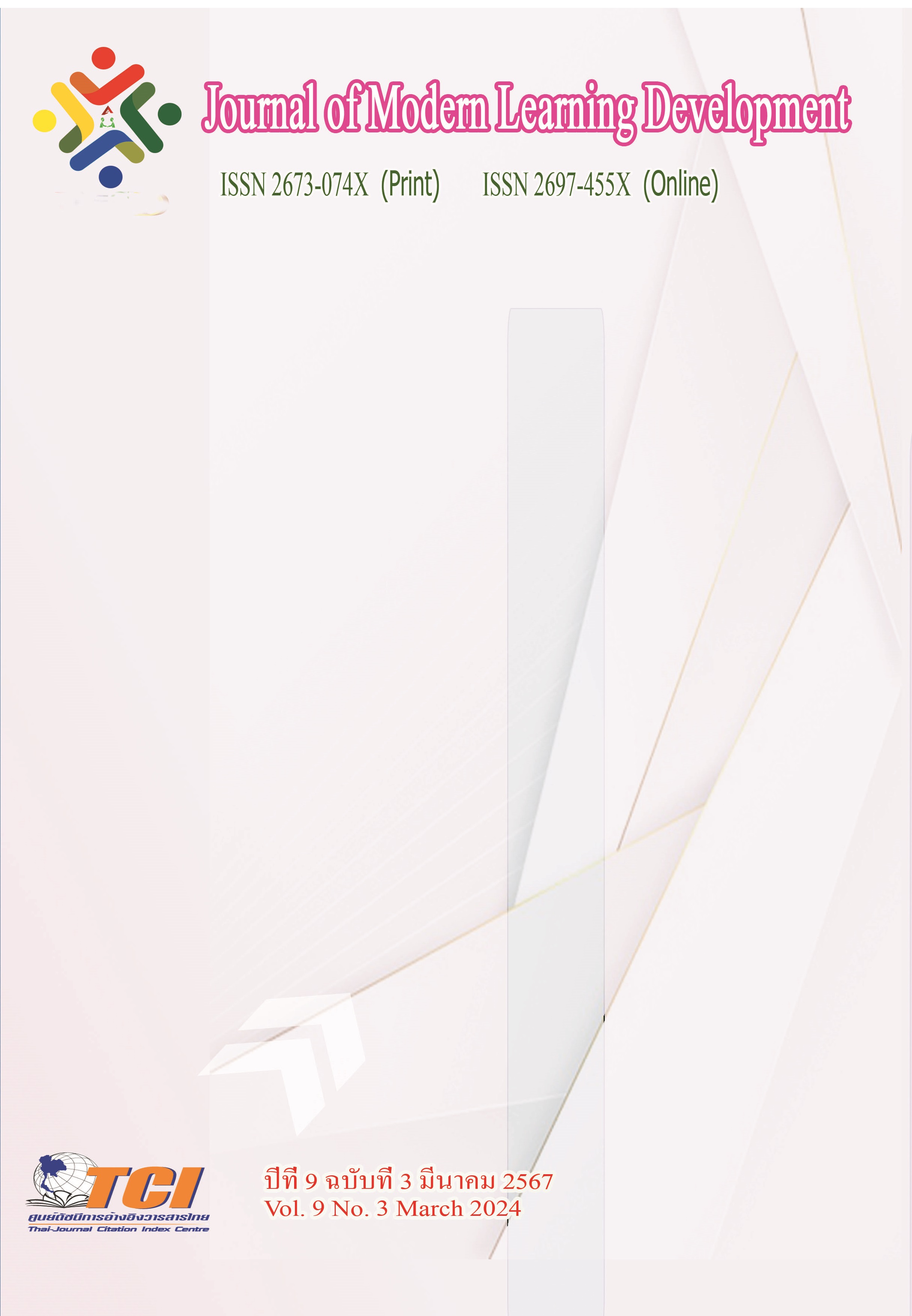The Effeciency of Cancer screening program on self-care behavior in a Suratthani Hospital
Main Article Content
Abstract
This research is a quasi-experimental study. Quasi-experimental research: The pretest – posttest one groups design. The objectives are to: 1. Compare knowledge about cervical cancer. Before and after participating in the cervical cancer screening program on self-care behavior Suratthani Hospital and 2. Compare health belief patterns Before and after participating in the cervical cancer screening program on self-care behavior Surat Thani Hospital From December 2023 - January 2024, the sample group is people who undergo cervical cancer screening. In the obstetrics and gynecology department Surat Thani Hospital During November-December 2023, a total of 50 people were drawn from purposive sampling and according to the specified eligibility criteria. Data were collected using a questionnaire. Statistics used in data analysis include descriptive statistics such as frequency distribution, percentage, mean, and standard deviation. Inferential statistics include Paired t-test statistics.
The results of the research found that 1) Regarding knowledge about cervical cancer, it was found that before and after participating in the program, the sample group had knowledge about cervical cancer. They were significantly different at the 0.05 level. 2) Regarding health belief patterns, it was found that before and after participating in the program, the sample group's mean scores on health belief patterns in all 4 areas were significantly different. Statistics at the 0.05 level. Therefore, the cervical cancer screening program for self-care behavior at Surat Thani Hospital should be applied to integrate with nursing services to introduce and transfer knowledge about cervical cancer. including public relations encouragement and encouraging more women in the target group to come for cervical cancer screening, which will help detect cervical cancer in the early stages. Resulting in reducing the death rate.
Article Details
References
เพ็ญนิภา ชำนาญบริรักษ์ และ เพ็ชรศักดิ์ อุทัยนิล. (2565). ปัจจัยที่มีความสัมพันธ์กับพฤติกรรมการมารับบริการตรวจมะเร็งปากมดลูก ของสตรีในพื้นที่รับผิดชอบโรงพยาบาลส่งเสริมสุขภาพตำบลเขวา. วารสารวิชาการทางการพยาบาลและวิทยาศาสตร์สุขภาพ. 2 (2), 1-12.
กรมอนามัย. (2558). การควบคุมมะเร็งปากมดลูกที่ครอบคลุม: แนวทางการปฏิบัติที่สำคัญ. นนทบุรี: สำนักอนามัยการเจริญพันธุ์.
รัฐพล สาแก้ว, จงกลนี ธนาไสย์ และบัณฑิต วรรณประพันธ์. (2560). ผลของโปรแกรมการส่งเสริมพฤติกรรมการมารับบริการตรวจคัดกรองมะเร็งปากมดลูก ในสตรีอายุ 30-60 ปี ในเขตโรงพยาบาลส่งเสริมสุขภาพตำบลหนองเหล็ก อำเภอเสขรภูมิ จังหวัดสุรินทร์.วารสารวิทยาลัยพยาบาลบรมราชชนนี นครราชสีมา. 23 (1), 17-30.
ริญดา ตะวันกุลกิตติ. (2564). รูปแบบกิจกรรมการสร้างแรงจูงใจและแรงสนับสนุนทางสังคมเพื่อส่งเสริมสตรีกลุ่มเสี่ยงเข้ารับบริการตรวจคัดกรองมะเร็งปากมดลูกของโรงพยาบาลส่งเสริมสุขภาพตำบลเพียเภ้า อำเภอวารินชำราบ จังหวัดอุบลราชธานี. วารสารวิจัยสาธารณสุขศาสตร์. 1 (6), 5-14.
ศรีสุรัตน์ ชัยรัตนศักดา. (2564). ผลการใช้โปรแกรมการคัดกรองมะเร็งปากมดลูกต่อความรู้ ทัศนคติ และความตั้งใจมารับบริการตรวจคัดกรองมะเร็งปากมดลูก โรงพยาบาลส่งเสริมสุขภาพตำบลพระนอน จังหวัดนครสวรรค์. สวรรค์ประชารักษ์เวชสาร. 18 (1), 60-69.
สถาบันมะเร็งแห่งชาติ. (2563). แนวทางการคัดกรองมะเร็งปากมดลูก ด้วยวิธี HPV DNA Test. นนทบุรี: สถาบันมะเร็งแห่งชาติ กรมการแพทย์ กระทรวงสาธารณสุข.
สุวิมล สอนศรี, วาริณี เอี่ยมสวัสดิกุล และชื่นจิตร โพธิศัพท์สุข. (2564). ผลของโปรแกรมการส่งเสริมการตรวจคัดกรองมะเร็งปากมดลูกสตรีกลุ่มเสี่ยง อ.เสลภูมิ จ.ร้อยเอ็ด. วารสารพยาบาล. 70 (3), 11-19.
Department of Health. (2016). Comprehensive Cervical Cancer Control: A guide to essential practice. Bangkok : Bureau of Reproductive Health, 439. 2016. [in Thai].
Malmir, S. (2018). Effect of an educational intervention based on protection motivation theory on preventing cervical cancer among marginalized women in west iran. Asian Pacific journal of cancer prevention. 19 (3), 755-761. doi:10.22034/APJCP.2018.19.3.755
Strecher & Rosenstock. (1996). Social learning theory and health belief model. Health Education Quarterly.15 (2), 75-138.


